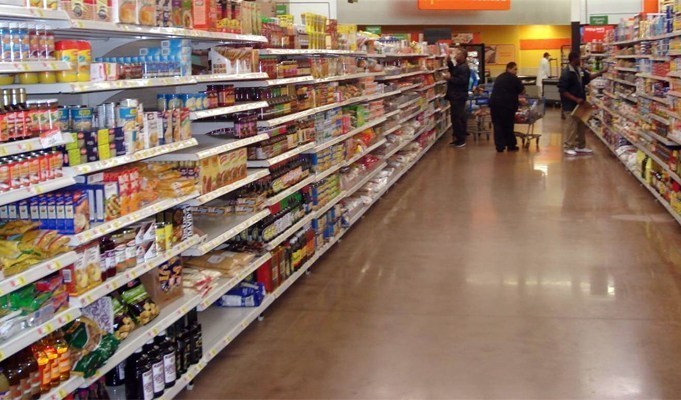
The second phase of the coronavirus lockdown saw a considerable shift in buying patterns of consumers from basic necessities to high-value items like snacks, processed food, packaged meat and frozen desserts, retailers said.

According to a PTI report: Retailers such as Future Group, Metro and Lots Wholesale said they witnessed a spike in demand for packaged food products like biscuits and noodles, resulting in an increase in the average purchase value per customer.
People also sought critical non-food products such as kitchen appliances, electrical goods, stationery and storage containers at Metro. “Yes, the second phase witnessed a growing demand for processed food, packaged meat and frozen desserts. People are working from home. Hence, snack items, biscuits and hot beverages are also in demand amongst customers,” Arvind Mediratta, MD & CEO, Metro Cash & Carry India told PTI.
As the restrictions started easing, customers saw they could get easy access to their daily essentials and so panic buying stopped, he added.
“Initially, customers were unsure of what the trickle down effect of the lockdown would be. Consumers started becoming vigilant and began hoarding essential commodities. There was a sense of panic. “But gradually, everyone was made aware that all essential products will continue to be available and people will not face a shortage. Currently, there is less panic buying and more need based buying,” he further told PTI.
As most people are working from home, Metro is witnessing enquiries from customers for IT products such as computers, mouse, keyboard, chargers and other accessories.
Kamaldeep Singh, President – Food & FMCG, Future Group said in the first phase people were buying basic necessary items such as atta, pulses and sugar, but in the second phase they focussed more on food items like biscuits, noodles and pasta.
“The definition of basic necessity has changed in couple of weeks from basic foods to snacking and munching items,” he said. According to Singh, people are not willing to travel long distances, hence footfall of large format stores is down but sales of convenience stores like EasyDay have picked up considerably. Though people are not hoarding goods, they have cravings for snacks and other items as they are staying at home, he said.
“In the second stage, people are buying products which can be cooked at home like pasta, noodles etc. Sales of frozen non-veg and home snacking and processed food have gone up to a large extent, such as French fries, baked items and ready-to-cook meals,” he told PTI.
As restaurants are closed, people are cooking many dishes at home, Singh said, adding “the trend in the second phase has shifted from pure basic essentials to instant food and snacking items.”
Tanit Chearavanont, Managing Director, Lots Wholesale Solutions said the demand in the second phase is majorly coming from both the “food and non-food FMCG categories” as compared to commodities which had seen a spike in the initial phase of lockdown.
“Overall, the average purchase value per customer has gone up,” he told PTI.
“There is a marked difference between consumer behaviour between the first phase and the second phase of lockdown. The first phase of lockdown was fuelled by panic buy resulting in bulk purchase in categories like commodities and FMCG food products. Panic buying continued for an initial 7-10 days of lockdown, slowly giving way to consumer’s confidence in the availability of essential goods,” he further told PTI.
Also, with the summer season kicking in, another category seeing major demand is insecticides, Chearavanont added.
According to value fashion and lifestyle products retailer V-Mart Retail, now consumers are “trusting” their retailers and have faith that goods would remain available. “Though, we are not operating many stores but have observed a shift in the consumer buying pattern in the second phase of lockdown. Earlier, we had noticed panic buying by the customer, purchasing whatever they can do but now people are assured about availability. That trust has come and now people are purchasing as per their requirement,” said Lalit Agarwal, Chairman and MD, V-Mart Retail was quoted by PTI as saying.
Meanwhile, several retailers have reported an increase in sales of their private labels, which filled the gaps as supply lines from other manufacturers were disrupted.
Asked whether the trend is likely to continue, Singh said consumers in the lockdown period are brand agnostics. “Right now the consumer is not very brand conscious, he simply wants products,” he told PTI.
According to Mediratta, due to the disruption in the supply chain, there were several FMCG companies that were not able to deliver their goods as their production was interrupted, leading to a shortage of branded goods such as instant noodles.
“However, customers were not bothered even if favorite brands were not available and were happy to transition to a private label brand. This gave a lot of boost to private labels whose stocks were available locally and so their supply remained steady without hindrances,” he told PTI.
The government first imposed a 21-day nationwide lockdown on March 24 to curb the spread of coronavirus infections. On April 14, the lockdown was extended till May 3.
The government has further extended the lockdown till May 17, but with considerable relaxations based on zones.


